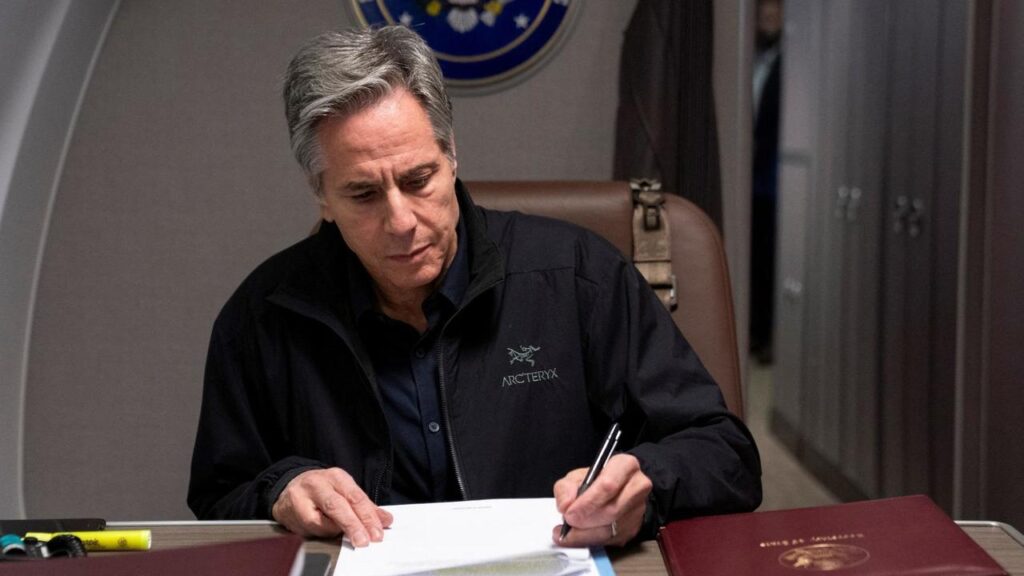To reduce hostilities, Egyptian President Abdel-Fattah el-Sissi announced on Sunday a new proposal for a two-day ceasefire between Israel and Hamas. During this proposed break in fighting, four hostages held in Gaza would be released in exchange for a limited number of Palestinian prisoners. The plan, the first of its kind to be publicly proposed by Egypt’s leader, also includes the delivery of humanitarian aid to the Gaza Strip, where conditions have been deteriorating.
Speaking from Cairo, President el-Sissi emphasized Egypt’s aim to “move the situation forward,” suggesting that, if the initial ceasefire proves successful, it could lead to more permanent negotiations. Egypt, alongside the United States and Qatar, has served as a primary mediator in peace efforts between Israel and Hamas, though talks ground to a halt last August after months of discussions.
The proposal comes at a moment of increased tension, with recent escalations hinting at the potential for a broader regional conflict. Just hours before el-Sissi’s announcement, Israeli Mossad chief David Barnea traveled to Doha, Qatar, to hold talks with CIA Director William Burns and Qatari Prime Minister Mohammed bin Abdulrahman bin Jassim Al Thani. El-Sissi’s call for a ceasefire also arrives amid fears that Iran could be drawn into the conflict, as recent exchanges of missile strikes between Israel and Iran have heightened concerns.
Israel and Hamas have not yet formally responded to Egypt’s proposal. However, at a memorial event marking the Hebrew anniversary of a significant October 7 attack, Israeli Defense Minister Yoav Gallant hinted at a possible openness to negotiation. “Not every goal can be achieved through military operations,” Gallant said, acknowledging that “painful compromises” may be necessary to bring hostages back home. His statement signals a potential willingness to consider el-Sissi’s proposed exchange as an alternative to continued conflict.
The most recent ceasefire between Israel and Hamas took place nearly a year ago in November, during which a temporary pause allowed for the release of 105 hostages in exchange for 240 Palestinian prisoners. This arrangement provided a brief respite from the fighting and gave hope to families on both sides. Now, as Egypt makes its bid for a humanitarian ceasefire, many are once again hopeful for an agreement that could ease the suffering of civilians caught in the crossfire.
In a related development, Egypt’s proposal came just one day after Israeli forces conducted strikes on Iran, retaliating for a recent missile attack by Tehran. The strikes represent Israel’s first direct action against Iran in this ongoing series of confrontations, marking a significant escalation that has raised alarms among international observers. The exchange of fire between Israel and Iran has the potential to pull regional powers into the conflict, further complicating an already volatile situation. Iran’s Supreme Leader Ayatollah Ali Khamenei commented on the strikes, cautioning that the incident “should not be exaggerated nor downplayed,” while stopping short of calling for immediate retaliation. His tempered response left many wondering if a larger regional confrontation could still be avoided.
Egypt’s plan to secure a ceasefire and facilitate the release of hostages, if successful, would represent a significant diplomatic achievement and a stabilizing influence in the region. Yet a lasting peace between Israel and Hamas would require more than just temporary pauses and agreements; it would demand substantial international support and likely difficult concessions from all parties involved. Without a ceasefire in place for nearly a year, Egypt’s proposal has offered a glimmer of hope that humanitarian aid could reach Gaza and that talks could eventually transition to a longer-term peace.
As diplomatic discussions continue in Doha, the region remains on edge. The fragile balance of power could shift rapidly based on the outcome of this proposed ceasefire, with international stakeholders closely watching for any sign of resolution or further escalation. For now, el-Sissi’s proposal represents one of the few promising steps toward easing tensions, even if only briefly, in a region where longstanding conflicts have yet to find a sustainable solution.
